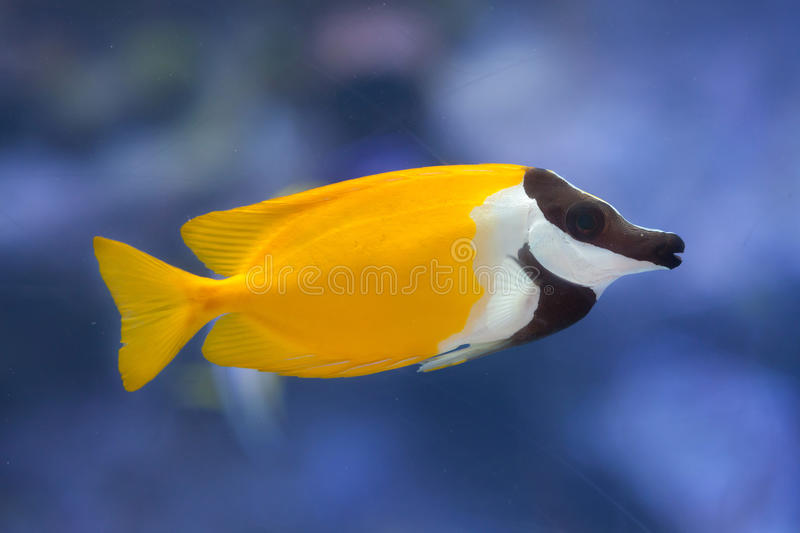ANIMAL: Foxface Rabbitfish Siganus vulpinus Type of Animal: Rabbitfish/Spinefoot Habitat: Lagoons, reefs, rocky reef outcrops Location(s): W Pacific from 30 N-30 S Latitude Appearance: Yellow fish w/ white-black face markings & foxlike face, becomes duller & mottled at night or when stressed Food/Diet: Algae, zooplankton, seaweed, vegetable matter, mysis shrimp, brine shrimp, Zoanthids, button polyps Status in Wild: Stable Conservation: Not applicable Lifestyle: Schools of 2-70 fish, mostly consisting of juveniles/subadults but often w/ adults as well, adults often seen in monogamous pairs Additional Info: Called: Male Female Young: Fry Group: School Gestation: 1-2 days Life Span: 5 years Body Length: Adult: 6-10 in Young: 2 in Due to venomous spines, they’re rarely on the menu for larger fish. Also called Foxface, Foxface Lo, Common Foxface, Yellow Foxface Rabbitfish, Black-Face Rabbitfish, Spinefeet (due to venomous spines on dorsal/anal/pelvic fins), & Badgerfish. Can utilize camouflage as a survival strategy. They play key role in controlling algae populations. They’re pelagic spawners, meeting high in water column & dispersing eggs into currents. Often use moon phases & tidal motions to coordinate breeding behavior. These fish extremely difficult to breed in captivity. Active during the day (diurnal). Get rabbitfish name due to rabbit-like mouth. These fish are rather shy. Skin mucus/slime provides protection against parasites/infections & helps fish move through water faster. Dorsal/ventral fins lend stability, tail fin helps fish propel through water, & pectoral fins are for locomotion & side-to-side movement. Sometimes confused w/ closely related species. They’re rather active fish. Fun Fact(s): Stings from venomous spines are painful & these fish should be handled w/ caution. However, these only used in defense. Very popular in aquarium trade but not for beginner aquarists. Probably most common rabbitfish species in trade. Occasionally used as food fish.
